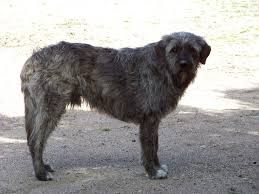
Sardinian Shepherd Dog
Sardinian Shepherd Dogs thrive in rural or spacious environments where they can exercise freely and perform their natural herding and guarding duties. They are not ideally suited for apartment living due to their need for space and activity.
Useful Fact: They require a large, secure yard to roam and patrol, reflecting their natural working environment.
A balanced diet rich in protein is essential to support their muscular build and active lifestyle. High-quality commercial dog food or a well-planned homemade diet is recommended.
Useful Fact: Including lean meats and nutrient-rich foods can help maintain their health and energy levels.
Sardinian Shepherd Dogs are generally healthy but can be prone to certain conditions such as hip dysplasia and joint issues due to their active nature.
Useful Fact: Regular veterinary check-ups and maintaining a healthy weight through proper diet and exercise can help prevent common health problems.
Their coat, which can be short or medium-length, requires regular grooming to remove loose hair and keep the coat healthy. Brushing several times a week and occasional bathing are recommended.
Useful Fact: Regular grooming sessions also provide an opportunity to check for ticks and other parasites, especially if they spend a lot of time outdoors.
Sardinian Shepherd Dogs are intelligent and independent, requiring consistent training. Early socialization and obedience training are crucial.
Useful Fact: Positive reinforcement techniques work best, as they respond well to rewards and gentle guidance. Consistency and patience are key in training them.
Interactive toys, puzzle games, and activities that engage their minds and bodies are ideal. They enjoy tasks that mimic their herding instincts, such as fetch and agility exercises.
Useful Fact: Providing a variety of toys can help keep them entertained and prevent boredom-related behaviors.
Given their strong protective instincts and independence, Sardinian Shepherd Dogs should be supervised around strangers and other animals. Secure fencing is necessary to keep them safe and contained.
Useful Fact: Leash training is crucial for their safety during walks, as they may be inclined to guard and protect their territory.
Sturdy collars, leashes, and comfortable bedding are necessary. Given their activity level and strength, durable accessories are recommended.
Useful Fact: A harness can provide better control during walks and help manage their pulling tendency when excited or on guard.
Early and consistent socialization with other dogs, animals, and people is important to ensure they grow into well-rounded adults.
Useful Fact: Regular playdates and exposure to different environments can enhance their social skills and reduce anxiety.
Traveling with a Sardinian Shepherd Dog requires planning due to their size and energy levels. They need secure arrangements and ample breaks during long trips to stay comfortable.
Useful Fact: Training them to be comfortable in a car from a young age can make travel easier and less stressful.
Sardinian Shepherd Dogs are known for their intelligence, loyalty, and strong protective instincts. They are affectionate with their families but can be wary of strangers.
Useful Fact: Understanding their need for mental and physical activity can help in managing their behavior and ensuring a happy, well-adjusted pet.
Owning a Sardinian Shepherd Dog may be subject to specific regulations, especially in areas with breed-specific legislation.
Useful Fact: Checking local regulations regarding pet ownership can help ensure compliance and prevent legal issues.




